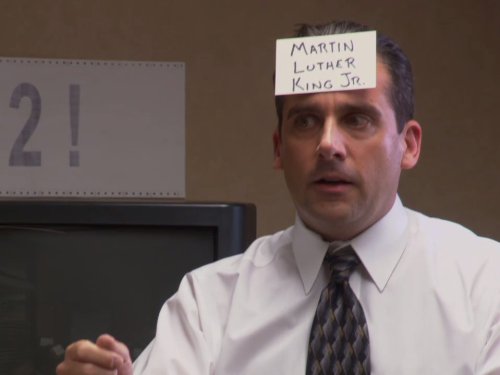
The Worst Kind of Education: Diversity Day Gone Wrong
Diversity Day. The words alone can conjure a grimace on the face of any Dunder Mifflin Scranton employee, a collective shudder born from a shared trauma perpetrated by their well-meaning, yet disastrously ill-equipped, regional manager, Michael Scott. It wasn't just a sensitivity faux pas; it was a masterclass in how not to foster understanding, a comedic train wreck fueled by ignorance and a desperate need for attention.
The seeds of this infamous day were sown in Michael's casual use of a Chris Rock routine in the office. Corporate, sensing a potential PR nightmare, mandated diversity sensitivity training, prompting Michael to see himself not as the problem, but as the solution. He fancied himself a pioneer, a courageous leader tackling the thorny issues of race and ethnicity with his signature brand of… well, Michael Scott-ness.
His first misstep, and arguably the most memorable, was his initial training exercise: the assigning of racial identities via notecards taped to foreheads. Employees, oblivious to their assigned race, were then expected to be treated according to that stereotype by their colleagues. Imagine Phyllis, usually meek and mild, being forced to endure mock-stereotypical comments about her “Jamaican” heritage, or Stanley, a Black man, being subjected to a white employee mimicking a racist caricature. The air crackled with discomfort, punctuated only by Michael's oblivious, self-satisfied chuckles. This wasn't a learning experience; it was a degrading spectacle.
The inherent problem was Michael’s approach. He saw diversity not as a celebration of unique perspectives and experiences, but as a hurdle to overcome with cheap jokes and superficial exercises. He lacked empathy, understanding, and any genuine desire to learn. His attempts were less about bridging gaps and more about fulfilling his own narcissistic craving for attention. He wanted to be seen as the brave comedian, the one who "tells it like it is," even when "it" was a collection of harmful stereotypes.
The arrival of Mr. Brown, the actual diversity consultant, offered a glimmer of hope. Finally, a professional, someone equipped to guide the employees through meaningful discussions. But Michael, threatened by Brown's presence and expertise, quickly hijacked the session. He interrupted, contradicted, and eventually, physically assaulted Brown (albeit in a misguided attempt to demonstrate the absurdity of racism). He turned the consultant into a prop in his own warped performance, further illustrating his complete misunderstanding of the topic at hand.
The real tragedy of Diversity Day wasn't just the cringeworthy comedy; it was the missed opportunity. Dunder Mifflin Scranton, a workplace with a diverse group of personalities, had the potential to learn and grow together. Instead, they were subjected to Michael's clumsy and offensive attempts at "education." The day underscored the importance of genuine empathy, careful listening, and the recognition that diversity training is not a joke, but a serious and necessary endeavor.
Ultimately, Diversity Day was a spectacular failure, a case study in how even the best intentions, when coupled with ignorance and ego, can lead to disastrous results. It serves as a potent reminder that understanding diversity requires more than just superficial exercises and offensive jokes; it demands a commitment to learning, empathy, and a willingness to challenge one's own biases. While Michael Scott might have thought he was enlightening his employees, he was, in reality, perpetuating the very problems he claimed to address. His actions proved that true diversity education starts with a genuine desire to understand, and a willingness to listen, learn, and grow – qualities that, on that day, were tragically absent from the office.